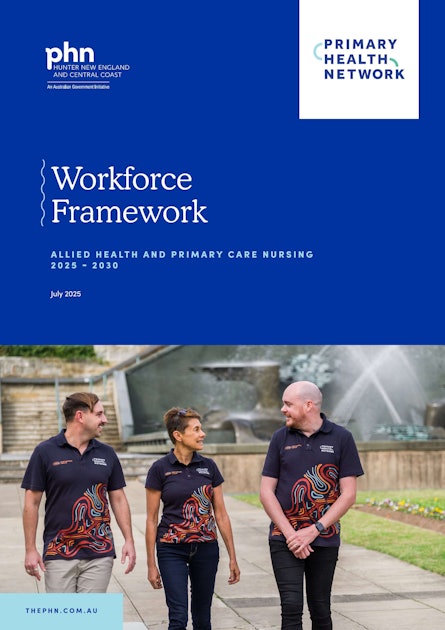Hunter New England and Central Coast Primary Health Network (HNECC PHN) has launched a new Allied Health and Primary Care Nursing Workforce Framework to address growing pressures on the healthcare workforce, particularly in rural and regional communities.
Australia’s allied health and primary care nursing sectors are grappling with significant challenges—including workforce shortages, uneven distribution, recruitment and retention difficulties, increased demand for services, and funding constraints. These issues are most acute in rural and regional areas, where limited access to allied health professionals and nurses places added strain on general practices and hospital systems.
The Framework offers a coordinated, strategic approach to building and sustaining the allied health and primary care nursing workforce. It complements the Primary Healthcare Workforce Framework (2024) and specifically addresses the needs of these vital health professions to ensure primary healthcare services across the region remain accessible, sustainable, and responsive.
HNECC PHN Chief Executive Officer Richard Nankervis emphasised the importance of a resilient, well-supported healthcare workforce. “Across the Hunter New England and Central Coast region, access to quality healthcare relies not only on doctors, but on the contributions of allied health professionals and primary care nurses who work alongside GPs to deliver comprehensive, person-centred care.”
“These professionals are central to multidisciplinary teams—supporting prevention, early intervention, chronic disease management, and a broad range of services that keep our communities healthy.
“However, ongoing workforce shortages, maldistribution, financial barriers, and systemic challenges continue to limit the ability of allied health and nursing professionals to work to their full potential, particularly in regional settings.
“To ensure a strong, sustainable workforce into the future, we must take action now. This Framework is a practical, evidence-based response—outlining clear strategies to build, attract, support, and retain a skilled allied health and nursing workforce in our region.” Mr Nankervis said.
The Framework is grounded in robust data analysis, current research, and direct consultation with local stakeholders—including 407 allied health practitioners and 110 additional contributors across the HNECC PHN region.
It outlines a clear roadmap to:
- Strengthen the workforce pipeline,
- Improve recruitment and retention,
- Support professional development,
- Embed innovative care models, and
- Promote financial sustainability across primary care services.
For more information on the PHN’s workforce projects or to download the Framework:
